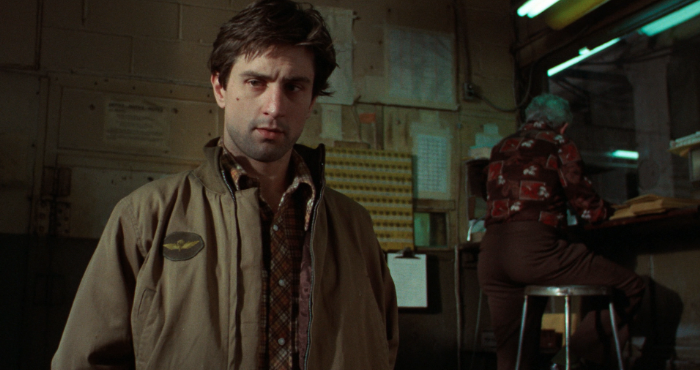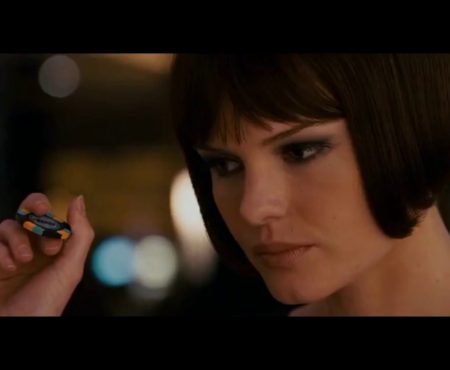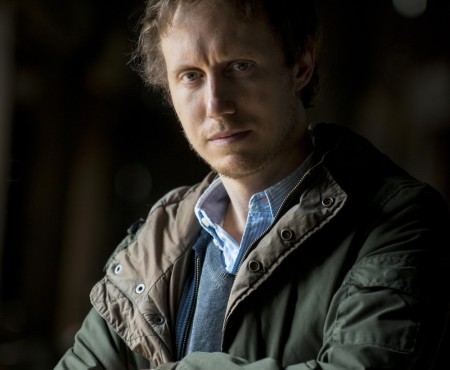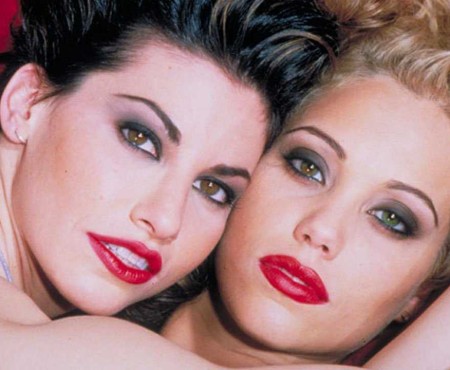This weekend saw the release of Paul Schrader’s (director of Mishima: A Life in Four Chapters and writer of Raging Bull) newest film The Canyons. Released on VOD Schrader’s latest is very much a film of the now. From its Kickstarter origins to its release platform – and most importantly its technology obsessed, post millennial ennui driven narrative – it’s a film that could only be made at this moment in time.
Before engaging with The Canyons I decided to take a look back at one of Schrader’s most famous cinematic creations, Taxi Driver: a film which captured its milieu so thoroughly that it has transcended the idea of a film being dated and has become an alien object.
Taxi Driver tells the tale of Vietnam veteran and deranged cabbie Travis Bickle (Robert De Niro). Over the course of the film Bickle attempts to assassinate a senator, decides to personally clean up the streets of New York City, and becomes obsessed with a teenaged prostitute (played by a youthful Jodie Foster). There is no point in waxing poetic about the quality of the film — its merits have been well documented. It’s a masterpiece on all fronts, but its greatest achievement is how it completely captures the highly unique environment of 1970s New York City.
Watching Taxi Driver today isn’t so much like entering a time machine, but a UFO. Times Square, littered with trash and grim, lined with pimps, whores, and XXX theaters, looks far more like a rung in Dante’s Inferno then any accurate representation of a metropolis. Anyone who has been in the kitschy mecca that Times Square is today can’t even fathom that this reality could have ever existed. And yet there it is, forever captured on celluloid in all of its skeezy glory.
As time presses on some films begin to feel dated. Often this is most prevalent in high concept or genre films as technology progresses special effects quickly appear antiquated. Though there’re films that become markers of time, rather then a cinematic vision of the modern. At the time of its release Saturday Night Fever perfectly captured the unbelievable flash of the disco era and now it is like an old polaroid: serving as an eternal reminder that yes people did dress like that and John Travolta actually had hair. The New York City of Taxi Driver is far too angry and seething to be reduced to an antique. Its grim nature is so singularly unique and alive that it functions as a way to transport the viewer to a different dimension, an alternate, hellish New York.
Through Scorsese’s lens the toxic city that never sleeps functions as a marker of Bickle’s eroded psyche — but it also serves as a vicious reminder. Scorsese captured this city that he loved so much at its ultimate low. In a way perhaps Scorsese foresaw New York’s future cleanup and gentrification, and he wanted Taxi Driver to always serve as a reminder of New York’s apocalyptic past. But it also operates as a permanent warning of the hell that could have continued. Perhaps the bleak, vacuous LA of Schrader’s The Canyons will join Scorsese’s hell on earth as a marker of the past, as well as a warning of what could have been.





















One thought on “Summer of Nick: ‘Taxi Driver’”
Great article! I couldn’t agree with you more! I’m excited in seeing Schrader’s new film, just as I am excited that he Schrader is going to work with Nicolas Cage – I’m running a blog on Cage, so that was some great news for me.